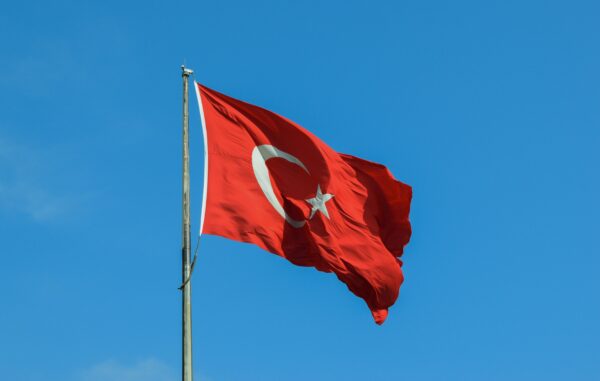
Syrian-owned shops and businesses have been closed in central Turkey amid fears of violence against Syrian refugees who have fled state-sanctioned violence in their war-torn home country. This follows a wave of attacks around the country that began on Sunday, June 30. Hundreds of Turks, driven by ire towards the large Syrian community in Turkey, burned down Syrian-owned buildings and flipped over the cars of Syrian refugees. Unfortunately, such assaults are not new. For over a decade, Syrians fleeing to their northern neighbor have been met with escalating xenophobia in Turkey, which has manifested in outbursts of anti-Syrian violence.
What Happened Recently in Turkey?
The riots began two Sundays ago in Kayseri, a city in the central region of Melikgazi. Videos from the violence are damning: Turks, donning Turkish flags, smashed goods sold by Syrian store owners, with many chanting nationalist anthems espousing xenophobia and the expulsion of Syrians from Turkey.
The protests followed the arrest of a Syrian man on charges of assaulting a seven-year-old girl. News of the arrest spread rapidly on social media, inciting many Turks to take to Kayseri’s streets in protest.
The violence was not isolated. Similar riots broke out across areas with substantial Syrian refugee communities, including the provinces of Hatay, Gaziantep, Konya, and Bursa.
Turkish President Recep Tayyip Erdogan decried the violence: “It is unacceptable to burn houses, vandalize and set streets on fire…Nothing can be achieved by fuelling xenophobia and hatred of refugees in society.” Turkish police forces have since detained 474 people associated with this week’s anti-Syrian violence.
What is the Context of Anti-Syrian Xenophobia?
The events of recently did not appear out of a vacuum. The past couple of years have seen a considerable resurgence of latent nationalism that has existed in the country since its inception. Xenophobia towards Turkey’s 3.7 million Syrian refugees, one of the largest refugee populations in the world, is a blight that has followed the community since they first arrived after escaping Syria’s ongoing civil war and state-exacted brutality under Syrian President Bashar al-Assad’s regime.
In 2021, similar scenes to those that unfolded Tuesday took place in the Turkish capital, Ankara. Citizens burned shops and cars in Syrian-majority neighborhoods following the death of an 18-year-old Turkish boy who was killed in a fight with Syrian peers. The violence that the refugee communities have faced has been repeated multiple times in the last few years across Turkish cities.
As with other waves of xenophobia, Turkey’s anti-refugee sentiment is derived from the country’s economic crisis. Since 2018, inflation rates have soared; Turkish households are grappling with levels of economic instability the country has not seen in decades. This has fueled contempt towards Syrian refugees, who have found a haven in Turkey amidst severe domestic instability.
Are There Possible Geopolitical Implications of Last Week’s Violence?
On July 5, Turkish President Erdogan announced his plans to rebuild an essentially null relationship with the Syrian Assad government. In 2011, when widespread civilian casualties and humanitarian crimes committed by the Assad regime began, Turkey severed its relationship with the government. In northwest Syria, Turkish forces have cooperated with anti-government forces, such as the Free Syria Army and Kurdish rebels, who have carved out ‘safe zones’ from authoritarian government control.
Erdogan has promised to return many Syrian refugees to Syria and end the influx of migrants. This plays an important part in his desire to mend ties with Damascus.
But counter-protests to last week’s widespread riots in northwest Syria, where the Turkish military has a presence, threaten Erdogan’s goals of rapprochement. Syrians have torn Turkish flags and attacked military vehicles in response to the violence against Syrian refugees across the border as xenophobic brutality plays out in Turkey.

